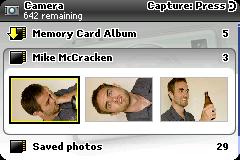Friday, 3 November 2006
ATSServer really, really, really sucks
The biggest day-to-day annoyances I’ve had since 10.0 have been, in descending order of irritation:
- Fonts: inconsistencies between rendering paths, bad support for bitmaps (I still can’t use my favorite font in BBEdit), ATSServer hangs/crashes, silent refusal to activate, font cache corruption, worthless Font Book interface, etc.
- Disks/filesystems: HFS+ slowness, Spotlight flakiness. AFP instability, slowness and complete inability to handle concurrent accesses. Disk Arbitration flakiness. Disk imaging instability and yet more flakiness. Flaky network browsing. Still no LVM. ZFS on OS X can’t come too soon—it’s been a joy to use on Solaris.
- USB: crashy drivers (less so of late), poor transfer throughput, overly aggressive port deactivation and poor feedback when something appears to go wrong. Some of these problems might be hardware—this Intel mini doesn’t work with my external USB 2 enclosure, whereas my iBook worked fine.
- Finder (need I say more?)
Today alone I spent about an hour troubleshooting font problems. First I spent about four reboots trying, and eventually failing, to get the fonts in ~/Library/Fonts to activate. No amount of font cache trashing or safe booting fixed it; I eventually just renamed the folder and told FontExplorer X to import them, at which point everything worked… until half an hour later when Camino hung then Terminal hung (as did every other app I tried, such as Dock and LaunchBar). Turned out ATSServer was using 100% CPU in some C++ destructor. I had to SSH in from another machine to kill ATSServer, at which point everything started working again. Guess I should be glad that it worked, or something.
I wonder how bad the underlying code really is, and pray it’ll get some attention in Leopard.
 7:28 PM
7:28 PM 6 Comments
6 Comments